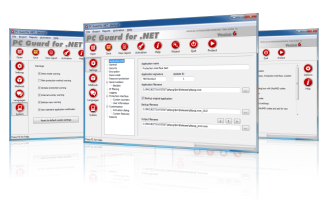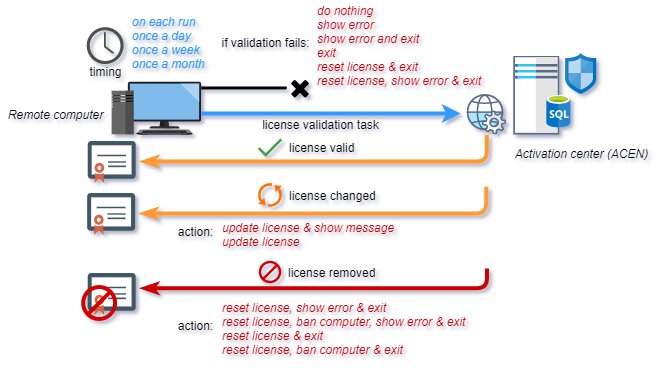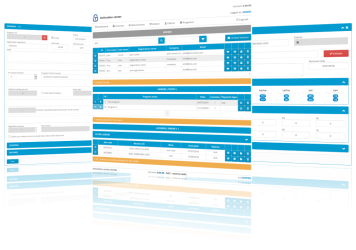
PC Guard Software Protection System 06.00.0750 is out!
New PC Guard Software Protection System update has been released. This update is highly recommended for all PC Guard users.

What's new:
[+] Languages settings panel added to Customization settings.
Language editor is used for managing languages and messages which are shared among all projects on computer where PC Guard is installed.
Languages settings panel is used for managing languages setting which are valid per project.
Default project language.
In previous releases, default language was the one selected in Language editor which was somehow confusing so we decided to move this option from Language editor to separate project settings.
Default project language will be used as primary user interface language for protected application.
If required, default language can also be changed from command line for protected application by using -PCG_CL_LANGUAGE option.
Optional languages to be included in protected application.
Default language is always enabled. Other languages are optional. Since messages for each language take space in resulting protected application, turning off languages which are not required will also decrease final size of protected application.
[+] New languages (translations for UI messages) added to default language file which is distributed with PC Guard.
New languages are: Danish, Dutch, Hungarian, Italian, Spanish, Swedish and Turkish.
New languages are now included in default language file (pcguard.lng) which is distributed with PC Guard.
Note: When upgrading existing installation of PC Guard new languages will not be automatically visible in language editor. This is because PC Guard will use existing language file on that computer which may already include some custom languages you've setup before.
[+] Command line interface for protected application improvement.
Command line interface for protected application is still by default turned ON but can now be turned OFF with single option.
Save button is no longer available. Option name and enabled status are now automatically updated when changed which makes process of enabling, disabling and changing of parameter name much easier and faster.
[*] Protection wizard improvements.
Existing dialogs are reordered and the following new pages are added to protection wizard: Password protection, IP filtering, Command line settings and Language settings.
[*] License transfer feature is no longer automatically enabled if TransferLicense protection interface function is detected in application and in case license transfer feature is enabled. Instead, information about detected function will be displayed with a prompt for continuing protection process.
[*] Reset (local) license button moved from General setting to Project menu.
Instead of going to General settings and clicking on License reset button local license data can now be deleted by using "Reset local license status" option from Project menu.
[*] Project settings and languages saving process has been optimized.
[!] If language is renamed in language editor custom buttons language will also be automatically renamed.
[!] Multiple other minor fixes and optimizations.
[>] Interface dll has been updated. Please be sure to update existing version with latest one.


